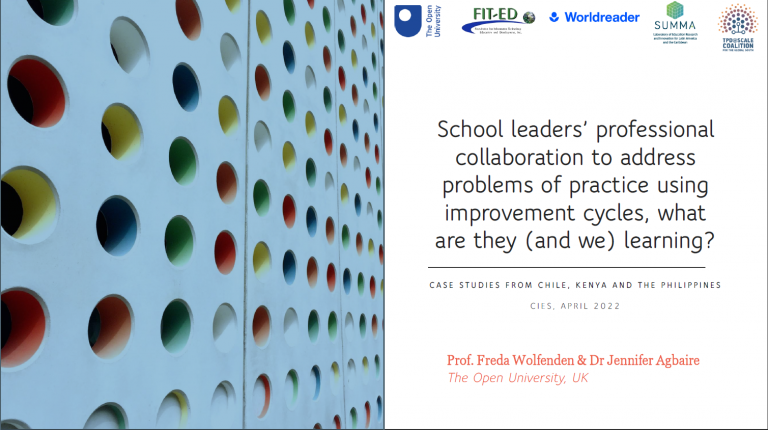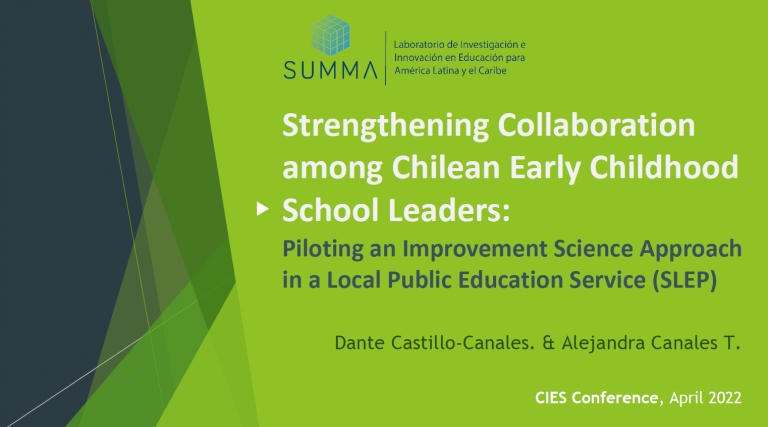The Comparative and International Society Conference in 2022 (Illuminating the Power of Idea/lism) included two presentations on the Coalition project Strengthening School Leadership Towards Improving School Resiliency.
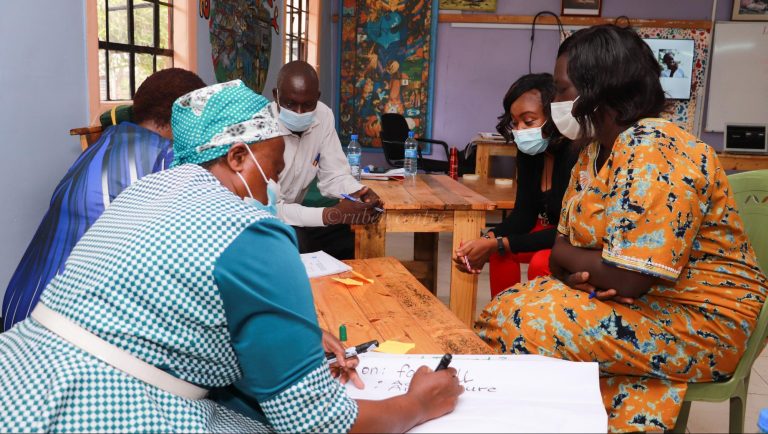
On April 21, 2022, the session Communities of practice and their influence on learning chaired by Yulia Nesterova, University of Glasgow featured School leaders’ collaboration with improvement cycles in Chile, Kenya, Uganda and the Philippines. What are they (and we) learning? – Freda Wolfenden, The Open University, UK; Jennifer Jomafuvwe Agbaire, The Open University, UK.
School leaders across the globe have been coping with multiple uncertainties and new problems of practice through the Covid-19 pandemic. In many countries, however, school leadership preparation and in-service provision includes little on developing the skills of these key professionals to respond effectively to varied, complex and open-ended local professional problems (Su, Gamage & Mininberg, 2003; Bush, 2013).
Professional collaboration through Networked Improvement Communities (NICs) and structured experimentation based on improvement research methodologies potentially offer an approach to enhance school leaders’ capacity and capabilities to bring about sustained improvement in practices (Milder & Lorr, 2017).
Since March 2021, and with funding from the International Development Research Centre-Canada (IDRC) this Covid response research project has been exploring this approach with small groups of school leaders (primary or pre-primary) in marginalized communities in very different contexts: Chile (Santiago), Kenya (Limuru and Mukuru), and the Philippines (Mindanao)
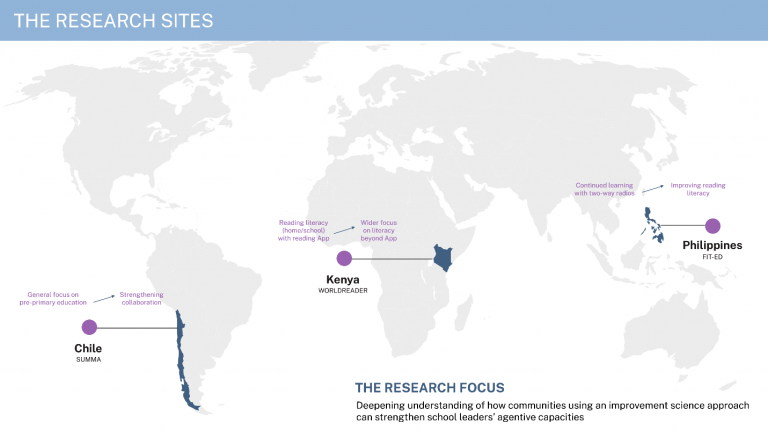
The project has surfaced multiple challenges to becoming a school leader:
- Little or no relevant pre-and in-service instructional leadership training
- Low external support and scarce interventions, with available ‘support’ limited to top-down supervision and performance control
- Administrative duties more valued than instructional leadership; strong supervisory demands around financial management and accountability
The project has also identified challenges common to school leaders across the three countries:
- Significant staff shortages and/or absenteeism in their schools
- Absence of an explicitly data-driven decision-making culture
- Bureaucratic, slow and sometimes complex decision-making processes
Evidence was pointing to little or no space for school leaders to develop agentive capabilities.

On April 19, 2022, the session Strengthening Education Systems Across South America: Various perspectives from Chile, Brazil, Argentina, and Paraguay chaired by Maria Belen Sanchez, Universidad de San Andrés featured Strengthening Collaboration among Chilean Early Childhood School Leaders: Piloting an Improvement Science Approach in a Local Public Education Service (SLEP) presented by Dante Canales-Castillo and Alejandra A. Canales-Tapia.
This study is part of the larger research project involving four Global South countries to understand how an improvement science approach can strengthen instructional school leadership towards school resiliency in a range of vulnerable local contexts. The Chilean pilot study includes the activities conducted via a Networked Improvement Community (NIC), formed by fourteen early childhood school leaders, a Local Public Education Service (SLEP) and an Educational Non-Profit Foundation, to strengthen the collaborative capacities in addressing emergent local challenges caused, not only by the pandemic but also by the transition to a renewed public education system.
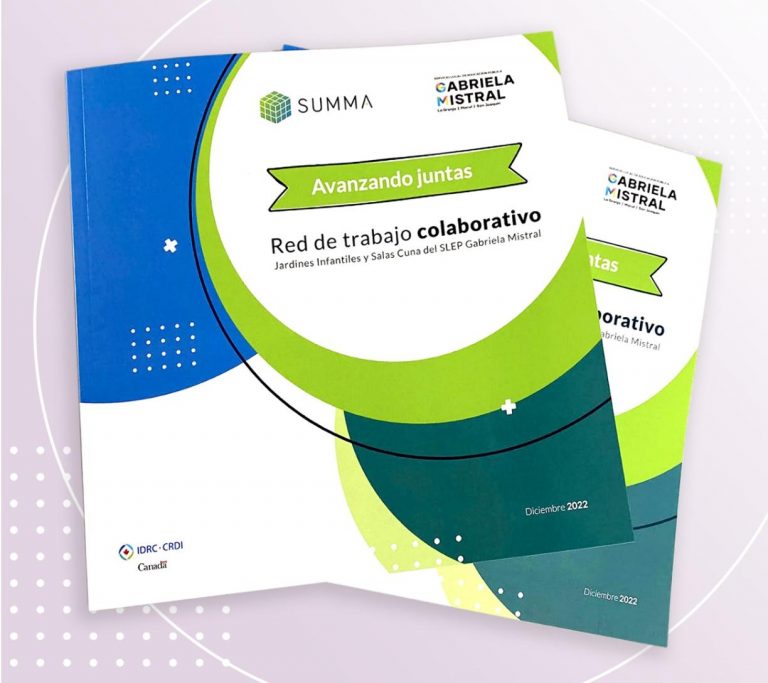
The results of this pilot stage will contribute to building more positive heterogeneous relationships based on trust and mutual respect and stimulating critical thinking, helping pre-primary leaders to clarify ideas through discussion and debate. These outcomes will inform policymakers, researchers and stakeholders about the need to consolidate a culture of collaboration in early childhood professionals and centers.


